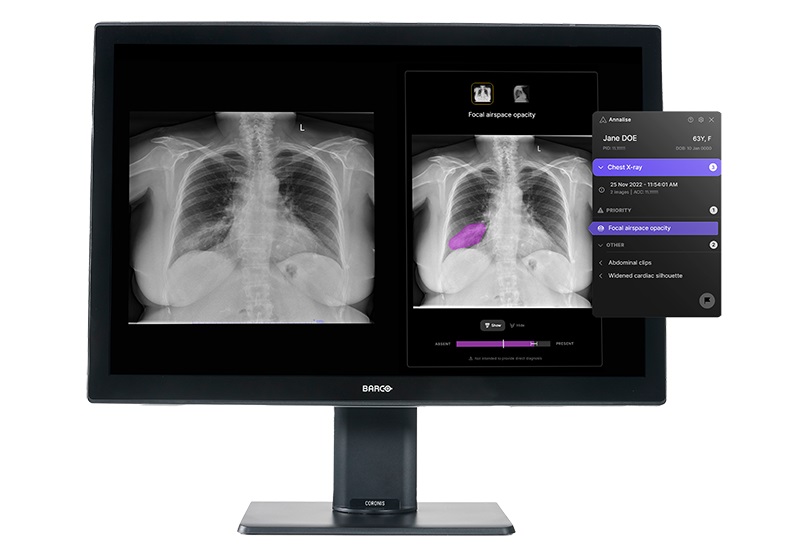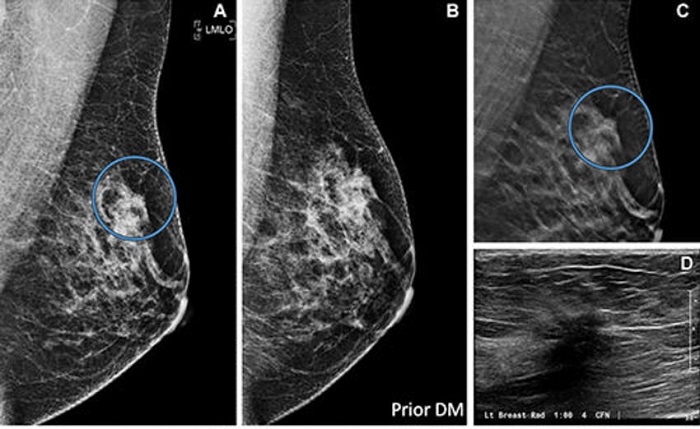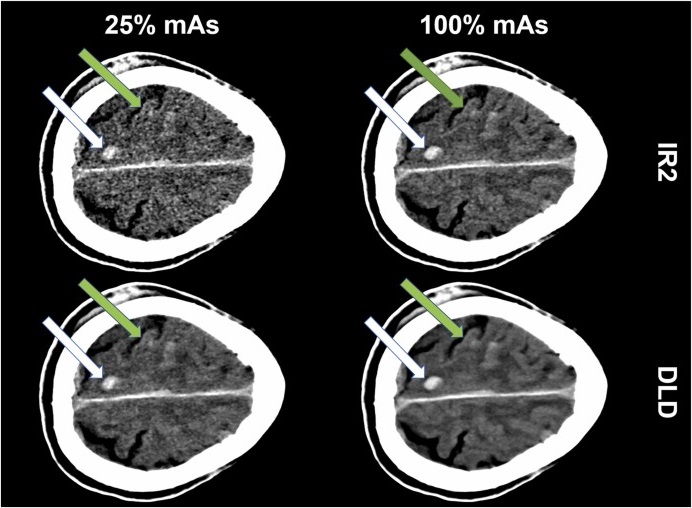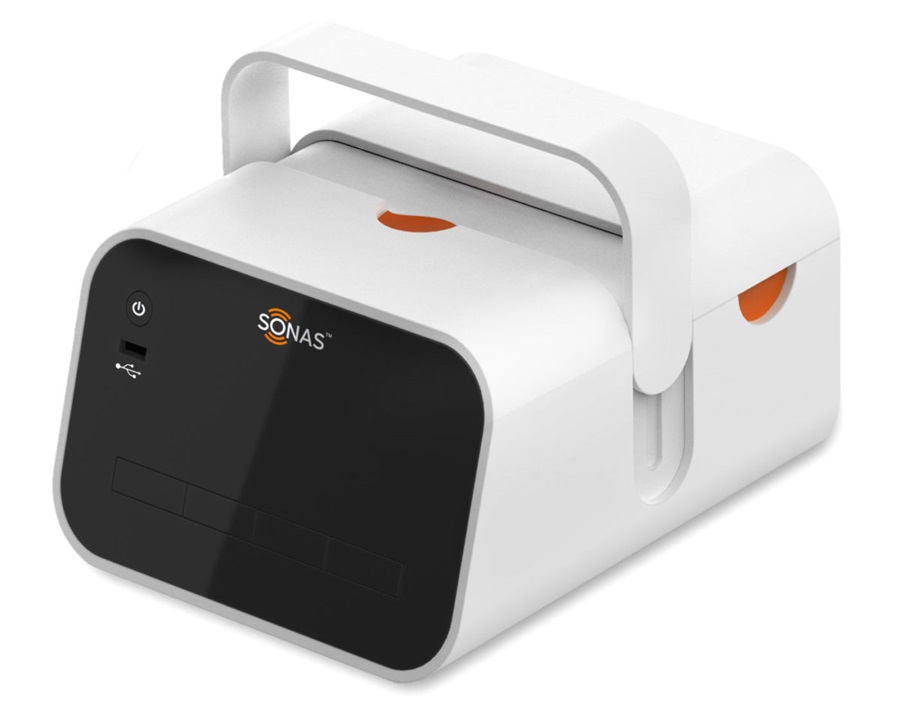Expo
view channel
view channel
view channel
view channel
view channel
view channel
view channel
Radiography
UltrasoundNuclear MedicineGeneral/Advanced ImagingImaging ITIndustry News
Events

- AI-Powered Chest X-Ray Detects Pulmonary Nodules Three Years Before Lung Cancer Symptoms
- AI Model Identifies Vertebral Compression Fractures in Chest Radiographs
- Advanced 3D Mammography Detects More Breast Cancers
- AI X-Ray Diagnostic Tool Offers Rapid Pediatric Fracture Detection
- AI-Powered Chest X-Ray Analysis Shows Promise in Clinical Practice
- Portable MRI System Dramatically Cuts Time-To-Scan vs. Conventional MRI in Stroke Patients
- Novel Model Identifies Focal Cortical Dysplasia Lesion from MRI Scans
- AI-Enhanced MRI Improves Diagnosis of Brain Disorders
- New Cardiac MRI Strategy Guides Ablation Procedures for Complex Tachycardias
- AI Model Achieves Clinical Expert Level Accuracy in Analyzing Complex MRIs and 3D Medical Scans
- New Radiotracer Could Be a Game Changer for Detection of Coronary Artery Disease
- Diagnostic Algorithm Distinguishes Between Alzheimer’s and Primary Tauopathy Using PET Scans
- Radiology Test Non-Invasively Diagnoses Immune Checkpoint Inhibitor-Associated AKI
- New PET/CT Technique Accurately Detects Neuroblastoma in Children with Short Scan Time and No Anesthesia
- New Imaging Method Enables Early Detection of Fungal Infections Caused by Aspergillus Fumigatus
- Groundbreaking Ultrasound-Guided Needle Insertion System Improves Medical Procedures
- Medical Imaging Breakthrough to Revolutionize Cancer and Arthritis Diagnosis
- Ultrasound Test Detects Ovarian Cancer in Postmenopausal Women with Highest Accuracy Of 96%
- Ultrasound-Activated Hydrogel Could Revolutionize Drug Delivery for Medical Applications
- Wearable Ultrasound Navigation System Could Improve Lumbar Puncture Accuracy
- Non-Invasive Imaging Technique Accurately Detects Aggressive Kidney Cancer
- AI Algorithm Reduces Unnecessary Radiation Exposure in Traumatic Neuroradiological CT Scans
- New Solution Enhances AI-Based Quality Control and Diagnosis in Medical Imaging
- AI Tool Detects Cervical Spine Fractures from CT Scans
- Flat Panel Detector Speeds Up Imaging and Diagnosis
- Global AI in Medical Diagnostics Market to Be Driven by Demand for Image Recognition in Radiology
- AI-Based Mammography Triage Software Helps Dramatically Improve Interpretation Process
- Artificial Intelligence (AI) Program Accurately Predicts Lung Cancer Risk from CT Images
- Image Management Platform Streamlines Treatment Plans
- AI Technology for Detecting Breast Cancer Receives CE Mark Approval
- RSNA 2024 Technical Exhibits to Showcase Latest Advances in Radiology
- Bracco Collaborates with Arrayus on Microbubble-Assisted Focused Ultrasound Therapy for Pancreatic Cancer
- Innovative Collaboration to Enhance Ischemic Stroke Detection and Elevate Standards in Diagnostic Imaging
- RSNA 2024 Registration Opens
- Microsoft collaborates with Leading Academic Medical Systems to Advance AI in Medical Imaging

Expo
 view channel
view channel
view channel
view channel
view channel
view channel
view channel
Radiography
UltrasoundNuclear MedicineGeneral/Advanced ImagingImaging ITIndustry News
Events
Advertise with Us
view channel
view channel
view channel
view channel
view channel
view channel
view channel
Radiography
UltrasoundNuclear MedicineGeneral/Advanced ImagingImaging ITIndustry News
Events
Advertise with Us


- AI-Powered Chest X-Ray Detects Pulmonary Nodules Three Years Before Lung Cancer Symptoms
- AI Model Identifies Vertebral Compression Fractures in Chest Radiographs
- Advanced 3D Mammography Detects More Breast Cancers
- AI X-Ray Diagnostic Tool Offers Rapid Pediatric Fracture Detection
- AI-Powered Chest X-Ray Analysis Shows Promise in Clinical Practice
- Portable MRI System Dramatically Cuts Time-To-Scan vs. Conventional MRI in Stroke Patients
- Novel Model Identifies Focal Cortical Dysplasia Lesion from MRI Scans
- AI-Enhanced MRI Improves Diagnosis of Brain Disorders
- New Cardiac MRI Strategy Guides Ablation Procedures for Complex Tachycardias
- AI Model Achieves Clinical Expert Level Accuracy in Analyzing Complex MRIs and 3D Medical Scans
- New Radiotracer Could Be a Game Changer for Detection of Coronary Artery Disease
- Diagnostic Algorithm Distinguishes Between Alzheimer’s and Primary Tauopathy Using PET Scans
- Radiology Test Non-Invasively Diagnoses Immune Checkpoint Inhibitor-Associated AKI
- New PET/CT Technique Accurately Detects Neuroblastoma in Children with Short Scan Time and No Anesthesia
- New Imaging Method Enables Early Detection of Fungal Infections Caused by Aspergillus Fumigatus
- Groundbreaking Ultrasound-Guided Needle Insertion System Improves Medical Procedures
- Medical Imaging Breakthrough to Revolutionize Cancer and Arthritis Diagnosis
- Ultrasound Test Detects Ovarian Cancer in Postmenopausal Women with Highest Accuracy Of 96%
- Ultrasound-Activated Hydrogel Could Revolutionize Drug Delivery for Medical Applications
- Wearable Ultrasound Navigation System Could Improve Lumbar Puncture Accuracy
- Non-Invasive Imaging Technique Accurately Detects Aggressive Kidney Cancer
- AI Algorithm Reduces Unnecessary Radiation Exposure in Traumatic Neuroradiological CT Scans
- New Solution Enhances AI-Based Quality Control and Diagnosis in Medical Imaging
- AI Tool Detects Cervical Spine Fractures from CT Scans
- Flat Panel Detector Speeds Up Imaging and Diagnosis
- Global AI in Medical Diagnostics Market to Be Driven by Demand for Image Recognition in Radiology
- AI-Based Mammography Triage Software Helps Dramatically Improve Interpretation Process
- Artificial Intelligence (AI) Program Accurately Predicts Lung Cancer Risk from CT Images
- Image Management Platform Streamlines Treatment Plans
- AI Technology for Detecting Breast Cancer Receives CE Mark Approval
- RSNA 2024 Technical Exhibits to Showcase Latest Advances in Radiology
- Bracco Collaborates with Arrayus on Microbubble-Assisted Focused Ultrasound Therapy for Pancreatic Cancer
- Innovative Collaboration to Enhance Ischemic Stroke Detection and Elevate Standards in Diagnostic Imaging
- RSNA 2024 Registration Opens
- Microsoft collaborates with Leading Academic Medical Systems to Advance AI in Medical Imaging









.jpeg)











 (1).jpg)











![Image: A kidney showing positive [89Zr]Zr-girentuximab PET and histologically confirmed clear-cell renal cell carcinoma (Photo courtesy of Dr. Brian Shuch/UCLA Health) Image: A kidney showing positive [89Zr]Zr-girentuximab PET and histologically confirmed clear-cell renal cell carcinoma (Photo courtesy of Dr. Brian Shuch/UCLA Health)](https://globetechcdn.com/medicalimaging/images/stories/articles/article_images/2024-10-04/ca9scan.jpg)













